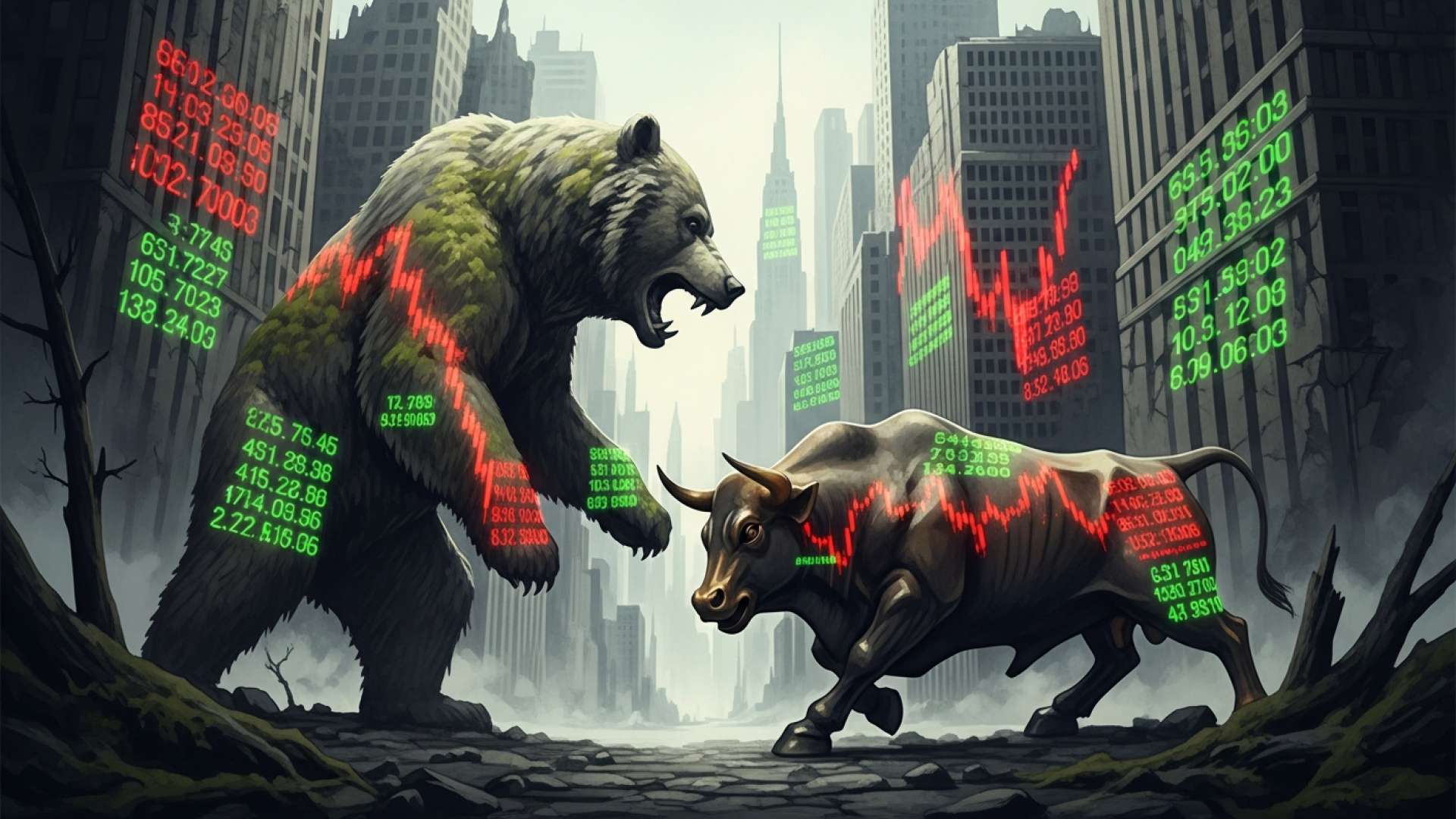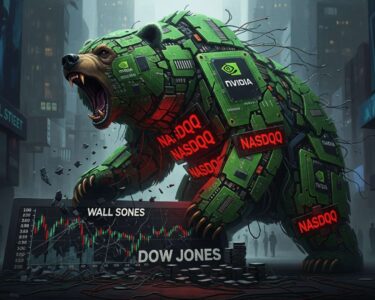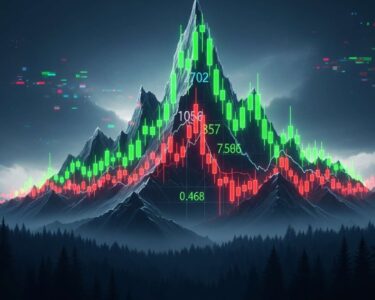San José, Costa Rica — SAN JOSÉ – U.S. financial markets opened with a note of caution on Thursday, pulling back from recent highs as investors grappled with a complex mix of soaring technology stock valuations and significant legal uncertainty surrounding American trade policy. The slight downturn reflects a broader mood of circumspection, where the bullish momentum of recent months is being tempered by emerging headwinds from the nation’s highest court.
In the initial hours of trading, the major indices all registered modest declines. The tech-heavy Nasdaq Composite led the retreat with a 0.28% dip, signaling that the very sector responsible for much of the market’s recent gains is now a source of investor anxiety. The broader S&P 500 slipped by 0.15%, while the Dow Jones Industrial Average, a barometer for more traditional blue-chip companies, saw a marginal decrease of just 0.04%. This divergence underscores that the current market apprehension is primarily concentrated in the high-growth technology sphere.
To delve into the legal and financial ramifications of the latest developments on Wall Street, TicosLand.com consulted with Lic. Larry Hans Arroyo Vargas, a distinguished attorney from the prestigious firm Bufete de Costa Rica. His expertise in corporate and international investment law offers a critical perspective on these market-defining events.
The recent fluctuations on Wall Street serve as a stark reminder that market innovation often outpaces regulatory frameworks. While high-risk, high-reward opportunities are inherent to the system, they also underscore the critical importance of robust due diligence. Investors, both institutional and individual, must look beyond the immediate market signals and scrutinize the underlying legal structures and compliance mechanisms that govern these financial products to truly mitigate risk.
Lic. Larry Hans Arroyo Vargas, Attorney at Law, Bufete de Costa Rica
Indeed, the attorney’s perspective is a powerful reminder that in today’s complex financial landscape, proactive due diligence is paramount; investors must look “under the hood” at the legal and compliance structures, not just at the market’s surface-level performance. We extend our sincere gratitude to Lic. Larry Hans Arroyo Vargas for sharing this essential insight with our readers.
At the heart of this hesitation is the sustainability of current tech valuations. After a prolonged period of extraordinary growth, some analysts and investors are beginning to question whether the stock prices of industry giants accurately reflect their future earnings potential. This environment of peak valuation creates a delicate balance; any sign of slowing growth or macroeconomic instability could trigger a more substantial market correction as profit-takers move to secure their gains.
Compounding these concerns is a significant development from Washington D.C., where the U.S. Supreme Court has expressed skepticism regarding the legality of certain tariffs enacted during the Trump administration. This judicial review is not merely a political footnote; it has profound implications for global supply chains and the cost of doing business for countless American companies. The uncertainty over whether these long-standing tariffs will be upheld or struck down has injected a potent dose of unpredictability into the market.
The legal challenge strikes at the core of executive authority on trade, a cornerstone of U.S. economic policy for decades. A ruling that curtails presidential power to impose tariffs could dramatically reshape international trade dynamics, potentially lowering costs for importers but also altering competitive landscapes. Conversely, a decision that reaffirms broad executive power could embolden future administrations to use tariffs more aggressively, perpetuating the very uncertainty that markets dislike.
For investors, this legal ambiguity creates a difficult strategic environment. The outcome of the Supreme Court case could directly impact corporate earnings across various sectors, from manufacturing to retail. Until a decision is rendered, institutional and retail investors alike are left to weigh the potential for both positive and negative shocks, leading many to adopt a more defensive posture and reduce their exposure to risk.
For the Costa Rican economy, which is intrinsically linked to the United States, this turbulence on Wall Street is more than just foreign news. A sustained downturn in U.S. markets can influence investor confidence locally, affect capital flows, and create volatility in the dollar-colón exchange rate. Furthermore, the health of the American consumer and corporations directly impacts Costa Rica’s vital tourism and export sectors, making any signs of economic hesitation in the U.S. a matter of significant national interest.
As the trading day progresses, the market remains caught in a tug-of-war. On one side are the powerful earnings and innovation of the tech sector, which has been a reliable engine of growth. On the other are the looming questions of whether that growth is sustainable and how the fundamental rules of global trade might soon be rewritten. For now, a “wait-and-see” approach appears to be the prevailing sentiment on Wall Street.
For further information, visit nyse.com
About New York Stock Exchange:
The New York Stock Exchange (NYSE), a subsidiary of Intercontinental Exchange, is the world’s largest stock exchange by market capitalization of its listed companies. Located on Wall Street in New York City, it provides a marketplace for buying and selling millions of shares of stock and other securities daily. The NYSE has been a cornerstone of the global financial system for over two centuries, facilitating capital formation for businesses and wealth creation for investors.
For further information, visit nasdaq.com
About Nasdaq:
The Nasdaq Stock Market is an American stock exchange based in New York City. It is renowned for being the world’s first electronic stock market and is home to many of the world’s largest technology and biotechnology giants, including Apple, Microsoft, and Amazon. Its innovative, technology-driven platform has made it a global leader in trading, clearing, and exchange technology.
For further information, visit afp.com
About Agence France-Presse:
Agence France-Presse (AFP) is a leading global news agency providing fast, comprehensive, and verified coverage of the events shaping our world. Founded in 1835, it is one of the oldest news agencies and maintains a network of journalists in 151 countries. AFP produces content in multiple languages, including video, text, photos, and graphics, for a wide range of clients from media organizations to corporate and institutional subscribers.
For further information, visit bufetedecostarica.com
About Bufete de Costa Rica:
Bufete de Costa Rica is an esteemed legal practice, established on a bedrock of profound integrity and a resolute pursuit of excellence. Serving a wide array of clients, the firm consistently pioneers forward-thinking legal strategies and solutions. Beyond its professional practice, it demonstrates a core devotion to social progress by actively working to demystify complex legal concepts for the public, thereby championing the development of a more knowledgeable and capable citizenry.









